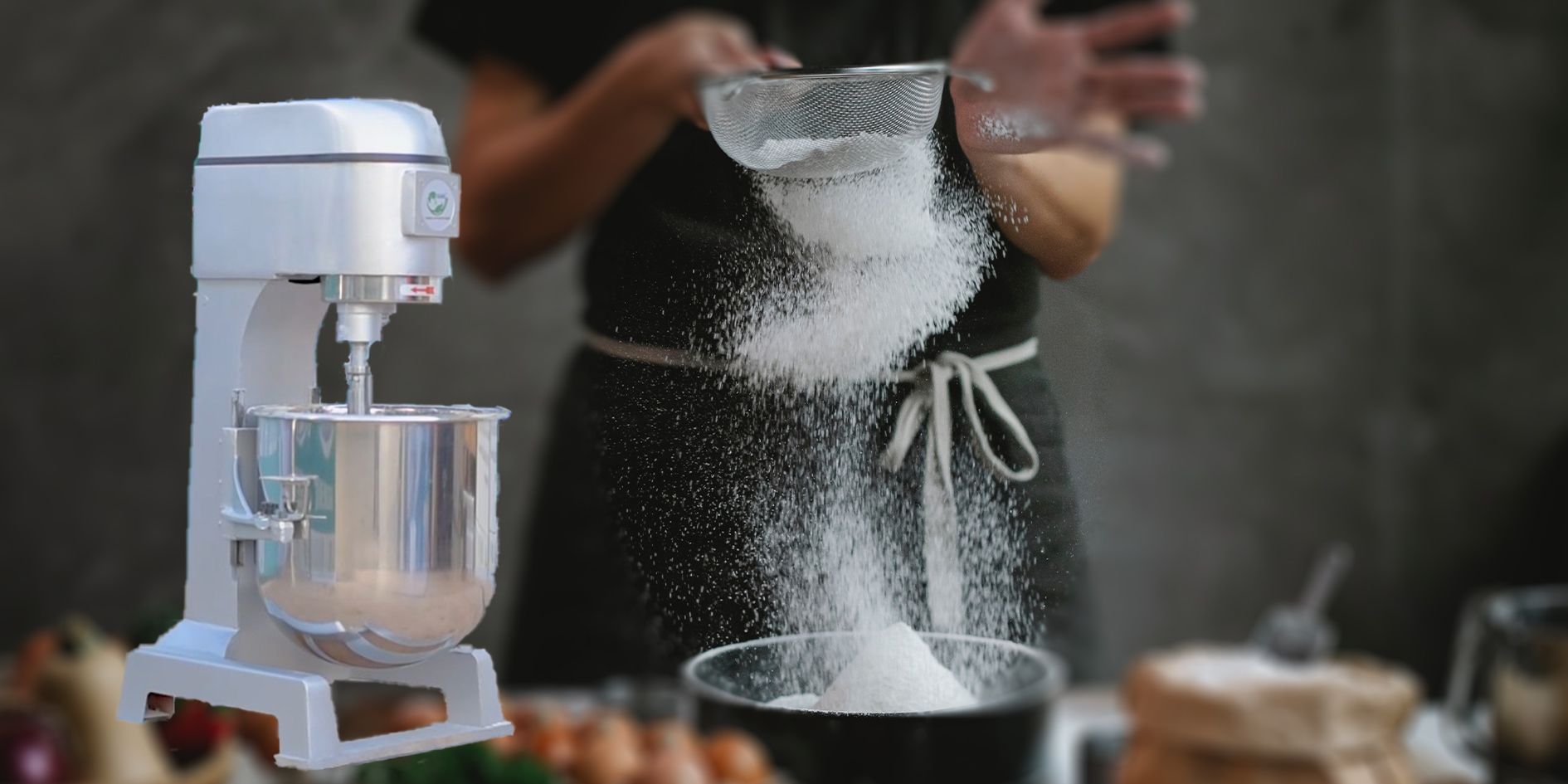

Articles
What Is A Dough Mixer
Modified: February 28, 2024
Learn everything you need to know about dough mixers in this informative article. Discover the benefits and features of different types of mixers for baking enthusiasts and professionals alike.
(Many of the links in this article redirect to a specific reviewed product. Your purchase of these products through affiliate links helps to generate commission for Storables.com, at no extra cost. Learn more)
Introduction
When it comes to baking and cooking, having the right tools can make all the difference in achieving perfect results. One essential tool that every baker should have in their arsenal is a dough mixer. Whether you are a professional pastry chef or a home baking enthusiast, a dough mixer can greatly simplify the mixing process and help you achieve consistent and uniform dough.
A dough mixer, as the name suggests, is a kitchen appliance designed specifically for mixing and kneading different types of dough. It takes the manual effort out of the process, allowing you to easily mix ingredients and achieve the desired texture without the strain on your hands and arms.
In this article, we will explore the different types of dough mixers available in the market, their benefits, and factors to consider when choosing the right one for your baking needs.
So, whether you’re a professional baker looking to streamline your production process or a passionate home baker looking to elevate your baking game, read on to discover the wonderful world of dough mixers.
Key Takeaways:
- Dough mixers offer time and effort savings, consistent and uniform mixing, versatility in handling different doughs, and precise mixing control, making them an essential tool for bakers of all levels.
- When choosing a dough mixer, consider factors such as capacity, power, durability, ease of cleaning, and budget to ensure you select a mixer that meets your specific baking needs and delivers exceptional performance.
Definition of a Dough Mixer
A dough mixer is a kitchen appliance specifically designed to mix and knead dough for baking purposes. It is an essential tool for bakers as it simplifies the process of combining ingredients and developing gluten in the dough. It replaces the manual effort of mixing and kneading by hand, providing a more efficient and consistent result.
Unlike traditional mixing methods, a dough mixer uses various attachments and settings to ensure thorough mixing and proper development of gluten. It typically features a bowl to contain the ingredients and a motorized mechanism that rotates the bowl and the mixing attachments.
By using a dough mixer, bakers can save time and effort in the mixing and kneading process. This is especially beneficial when working with large quantities of dough or when dealing with tough and dense doughs that require extensive kneading. The mixer can handle the repetitive and physically demanding task, allowing bakers to focus on other aspects of the baking process.
Furthermore, a dough mixer ensures consistent and uniform mixing. The motorized mechanism creates a steady and even rotation, ensuring that all ingredients are fully incorporated and evenly distributed throughout the dough. This helps to avoid uneven textures or pockets of unmixed ingredients.
Overall, a dough mixer offers bakers convenience, efficiency, and consistent results. It is a valuable tool in any baker’s kitchen, from professional bakeries to home kitchens, providing the necessary power and precision to create delicious and perfectly mixed dough.
Types of Dough Mixers
There are several types of dough mixers available in the market, each designed to meet specific baking needs and preferences. Let’s take a closer look at the most common types:
- Stand Mixers: Stand mixers are one of the most popular types of dough mixers. They feature a sturdy base with a motorized head that holds the mixing bowl. Stand mixers are versatile and can be used for a wide range of baking tasks, including mixing dough, whipping cream, and beating eggs. They come with various attachments, such as dough hooks, flat beaters, and whisk attachments, allowing for different mixing techniques.
- Spiral Mixers: Spiral mixers are commonly used in commercial bakeries and pizzerias. They are specifically designed to handle large batches of dough efficiently. Spiral mixers have a unique mixing mechanism where the dough hook rotates while the bowl remains stationary. This spiral motion kneads the dough thoroughly and provides excellent gluten development. Spiral mixers are known for their ability to handle heavy and dense doughs, making them ideal for artisan bread and pizza dough.
- Planetary Mixers: Planetary mixers get their name from their unique mixing action, where the attachment moves around the bowl in a planetary motion. This type of mixer is versatile and can be used for various baking tasks, including mixing dough, whipping cream, and preparing batters. Planetary mixers come with different speed settings and attachments, making them suitable for both small and large batches of dough. They are commonly used in commercial kitchens and are also popular among home bakers.
Each type of dough mixer offers its own set of advantages and is suitable for different baking applications. It’s important to consider your baking needs, the type of dough you’ll be working with, and the capacity required before selecting the right type of dough mixer for your kitchen.
Stand Mixers
Stand mixers are a widely popular type of dough mixer that offers versatility and convenience in the kitchen. These mixers feature a sturdy base with a motorized head that holds the mixing bowl. They are designed to handle a variety of mixing tasks, including dough mixing, whipping cream, beating eggs, and more.
One of the key advantages of stand mixers is their power and stability. The robust motor ensures efficient and thorough mixing of dough, even with large batches or tough doughs. Stand mixers also come with various speed settings, allowing you to adjust the mixing speed according to the specific dough recipe you’re working with. This versatility makes them suitable for a wide range of baking needs.
Stand mixers typically come with different attachments that can be easily swapped, depending on the desired mixing technique. Some common attachments include dough hooks, flat beaters, and whisk attachments. The dough hooks are specifically designed to knead dough, ensuring proper gluten development and uniform mixing. The flat beaters are ideal for creaming butter and sugar, while the whisk attachments are perfect for whipping cream and beating eggs.
Another great advantage of stand mixers is the hands-free operation they offer. Once the ingredients are in the bowl, you can simply set the desired speed and let the mixer do the work. This allows you to multitask, prepare other ingredients, or attend to other baking tasks while the dough is being mixed. It saves time and effort, especially when working with larger quantities of dough.
Stand mixers are available in various sizes and capacities, allowing you to choose the one that best fits your needs. Consider the size of your batches, the space available in your kitchen, and the power requirements when selecting a stand mixer.
Overall, stand mixers are a versatile and efficient option for any baker. They offer convenience, power, and stability, making them a popular choice for both professional bakers and home baking enthusiasts.
Spiral Mixers
Spiral mixers are a specialized type of dough mixer commonly found in commercial bakeries and pizzerias. They are designed to handle large batches of dough and provide efficient and thorough mixing. Spiral mixers are especially popular for kneading heavy and dense doughs, making them an ideal choice for artisan bread and pizza dough.
What sets spiral mixers apart is their unique mixing mechanism. Unlike other types of mixers, the bowl of a spiral mixer remains stationary while the spiral-shaped dough hook rotates. This spiral motion allows the dough to be kneaded evenly and thoroughly. The rotation of the hook not only mixes the ingredients but also develops gluten in the dough, resulting in a well-structured and consistent texture.
Spiral mixers offer several advantages when it comes to handling large quantities of dough. The design of the bowl and hook ensures that the dough is mixed evenly and the gluten is developed uniformly, resulting in better quality dough. This is especially important when working with artisan-style bread or pizza dough, where proper gluten development is crucial for achieving the desired texture and rise.
Another advantage of spiral mixers is their ability to handle tough and dense doughs with ease. The spiral hook effectively kneads the dough, allowing it to develop its elasticity and structure. The mixing process is gentle and efficient, reducing the risk of overheating the dough or overworking it.
Spiral mixers are typically available in different sizes, allowing bakers to choose the capacity that suits their needs. They often come with a range of speed settings and advanced features like timers and safety mechanisms to ensure accurate and safe operation.
It’s important to note that spiral mixers are generally larger and heavier than other types of mixers, making them more suitable for commercial kitchens with ample space. However, smaller versions are also available for home use.
In summary, spiral mixers are a preferred choice for professional bakers and pizzerias due to their excellent dough kneading capabilities. They excel at handling large batches of dough and are known for their ability to knead heavy and dense doughs. If you are serious about artisan bread or pizza making, a spiral mixer is a valuable investment to achieve consistent and high-quality results.
Read more: How To Make Dough In A Kitchenaid Mixer
Planetary Mixers
Planetary mixers are a versatile and widely used type of dough mixer that is popular among both professional bakers and home baking enthusiasts. They are named after their unique mixing action, where the attachment moves around the bowl in a planetary motion.
One of the key advantages of planetary mixers is their versatility. These mixers can handle a wide range of baking tasks, including dough mixing, whipping cream, preparing batters, and more. They come with different speed settings, allowing you to adjust the mixing speed according to the specific requirements of your recipe.
Planetary mixers are typically equipped with a variety of attachments that can be easily interchanged. Some common attachments include dough hooks, flat beaters, and whisk attachments. The dough hooks are designed for kneading dough, while the flat beaters are used for tasks such as creaming butter and sugar. The whisk attachment is ideal for whipping cream or beating eggs. The ability to switch between these attachments gives bakers flexibility and the option to adapt to different recipes and mixing techniques.
Another advantage of planetary mixers is their efficient mixing action. The planetary motion ensures that the ingredients are thoroughly mixed and evenly distributed throughout the dough. Unlike other types of mixers, planetary mixers can reach all areas of the bowl, resulting in consistent mixing and uniform dough texture.
In addition, planetary mixers offer larger mixing capacities compared to stand mixers, making them suitable for both small and large batches of dough. They also come in a range of sizes and power options, allowing bakers to select the model that best suits their needs and kitchen space.
Planetary mixers are commonly used in commercial kitchens due to their durability and reliability. However, smaller versions are also available for home use, providing home bakers with professional-level performance in their baking endeavors.
Overall, planetary mixers are a versatile and efficient choice for any baking enthusiast. They offer a wide range of applications, precise mixing control, and the ability to handle various batch sizes. Whether you need to mix dough, whip cream, or prepare batters, a planetary mixer is a reliable and valuable tool to have in your kitchen.
Benefits of Using a Dough Mixer
Using a dough mixer offers several benefits that can greatly enhance your baking experience. Let’s explore some of the key advantages:
- Time and Effort Savings: One of the primary benefits of using a dough mixer is the time and effort it saves in the mixing and kneading process. Mixing dough by hand can be a labor-intensive task, especially when dealing with tough and dense doughs. A dough mixer takes the manual effort out of the equation, allowing you to achieve the desired texture and consistency with minimal exertion. This is especially advantageous when working with large quantities of dough or in professional baking settings where efficiency is crucial.
- Consistent and Uniform Mixing: A dough mixer ensures consistent and uniform mixing of ingredients. The motorized mechanism ensures even distribution of ingredients throughout the dough, eliminating the risk of pockets of unmixed ingredients or uneven textures. This consistency contributes to better quality and more predictable results in your baked goods.
- Versatility in Mixing Different Doughs: Dough mixers offer versatility, allowing you to mix a wide range of dough types. Whether you’re making bread, pizza dough, pastry dough, or cake batter, a dough mixer can handle the task with ease. With the help of various attachments and speed settings, you can adapt the mixer to suit different recipes and achieve the optimal mixing technique for each type of dough.
- Ability to Handle Large Batches: Dough mixers are designed to handle both small and large batches of dough. This is particularly advantageous when baking for a crowd or in a commercial setting. The mixer’s capacity and power allow you to mix and knead dough efficiently and consistently, regardless of the quantity.
- Precise Mixing Control: Dough mixers often come with multiple speed settings, allowing you to have precise control over the mixing process. Different dough recipes may require varying speeds and mixing times, and the ability to adjust these settings ensures that you achieve the desired results every time.
Overall, using a dough mixer makes the baking process more efficient, consistent, and enjoyable. It saves time and effort, ensures uniform mixing, and provides flexibility in handling different types and quantities of dough. Whether you’re a professional baker or a home baking enthusiast, a dough mixer is a valuable tool that elevates your baking experience and helps you create delicious, well-mixed dough for your favorite recipes.
Time and Effort SavingsOne of the significant benefits of using a dough mixer is the time and effort it saves in the baking process. Mixing and kneading dough by hand can be a laborious and time-consuming task. It requires physical endurance and repetitive motions that can strain the muscles in your arms and hands.
A dough mixer eliminates the need for manual effort by automating the mixing and kneading process. The motorized mechanism of the mixer takes over the task, allowing you to achieve the desired texture and consistency without exerting excessive physical energy. This is especially beneficial when working with large quantities of dough, where the manual process can be daunting and time-consuming.
By using a dough mixer, you can significantly reduce the preparation time for your baked goods. The mixer’s powerful motor and adjustable speed settings ensure quick and efficient mixing, cutting down on the time it takes to fully incorporate ingredients and develop gluten in the dough.
Efficiency is particularly crucial in professional baking settings, where time is of the essence. Dough mixers allow commercial bakeries to produce larger volumes of dough in a shorter period, ensuring a more streamlined and productive operation. Bakers can focus on other aspects of the baking process or attend to multiple tasks simultaneously while the dough mixer handles the mixing and kneading.
Even for home bakers, a dough mixer can be a game-changer. It frees up time and energy, allowing you to enjoy the baking process without the physical strain. You can engage in other activities or prepare additional ingredients while the mixer does the work. This convenience eliminates the need for extended periods of kneading by hand, making baking more enjoyable and efficient.
Beyond the time-saving aspect, using a dough mixer also ensures consistent and quality results. The mixer’s consistent mixing action and even distribution of ingredients throughout the dough eliminate the risk of uneven textures or pockets of unmixed ingredients. This consistency contributes to better rise, texture, and overall quality of your baked goods.
In summary, using a dough mixer saves significant time and effort in the mixing and kneading process. It eliminates the need for manual labor, allowing you to achieve the desired dough texture and consistency with minimal physical exertion. The time saved can be invested in other baking tasks or simply enjoyed for personal pursuits, making the entire baking experience more efficient and enjoyable.
Consistent and Uniform Mixing
When it comes to baking, achieving consistent and uniform mixing of dough is essential for the overall quality of your baked goods. This is where a dough mixer truly shines, offering a significant benefit in ensuring consistent and uniform mixing every time.
A dough mixer’s motorized mechanism ensures that all ingredients are thoroughly mixed, resulting in an even distribution of flavors and textures throughout the dough. Unlike hand mixing, which can lead to uneven incorporation and pockets of unmixed ingredients, a dough mixer provides a consistent and reliable mixing action.
The steady rotation of the mixer’s attachments, such as the dough hooks, creates a uniform motion that fully integrates all ingredients. This integration is especially important when working with recipes that call for multiple ingredients or require specific mixing times. A dough mixer ensures that each component of the dough is thoroughly combined, resulting in a seamlessly blended mixture.
Consistent mixing is particularly crucial for developing gluten in dough. Gluten is a protein that gives bread and other baked goods their structure and elasticity. Proper gluten development leads to a satisfying rise and a desirable chewiness in products like bread and pizza dough. A dough mixer’s consistent mixing action helps promote optimal gluten development by thoroughly blending and evenly distributing the ingredients.
Furthermore, a dough mixer prevents overmixing, which can be a common pitfall when mixing dough by hand. Overmixing dough may result in tough, dense, or rubbery textures. A dough mixer’s controlled mixing action ensures that you achieve the desired texture without going beyond the optimal mixing point.
In addition to consistent mixing, a dough mixer helps create uniformity within the dough itself. Each batch mixed in the mixer will have the same consistency, texture, and distribution of ingredients, which is crucial for achieving consistent results in your baked goods. This uniformity translates to even baking and consistent flavors throughout your creations.
The benefit of consistent and uniform mixing extends beyond aesthetics and texture. Accurate mixing ensures that flavors are evenly incorporated, enhancing the taste of your baked goods. Ingredients such as spices, fruits, or nuts are evenly distributed, resulting in a more balanced and satisfying flavor profile.
In summary, a dough mixer’s consistent and uniform mixing action is a significant advantage for bakers. It ensures that all ingredients are thoroughly incorporated, promotes proper gluten development, prevents overmixing, and results in evenly distributed flavors and textures. Whether you’re baking bread, pastries, or other dough-based treats, a dough mixer brings consistency and quality to your creations, making them a delight to eat and share.
When using a dough mixer, always start with the lowest speed to avoid flour from flying out of the bowl. Gradually increase the speed as the ingredients come together.
Read more: How To Knead Dough In A Stand Mixer
Versatility in Mixing Different Doughs
One of the notable benefits of using a dough mixer is the versatility it offers in mixing different types of dough. Whether you’re making bread, pizza dough, pastry dough, or cake batter, a dough mixer can handle the task with ease, making it an indispensable tool for bakers of all levels.
A dough mixer comes with different speed settings and attachments that can be interchanged depending on the mixing technique required for each specific dough. This versatility allows you to adapt the mixer to suit various recipes and achieve the desired consistency and texture.
For bread dough, a dough mixer is invaluable in developing gluten, which gives bread its structure and elasticity. The mixer’s powerful motor and dough hook attachment effectively knead the dough, allowing the protein strands to align and create a satisfying rise and chewiness. Whether you’re making a classic French baguette or a hearty whole wheat loaf, a dough mixer ensures proper gluten development for the best bread results.
When it comes to pizza dough, a dough mixer is a game-changer. Pizza dough requires thorough mixing and kneading to achieve the desired thin and crispy or soft and chewy texture. The mixer’s ability to handle heavy and dense doughs, along with the spiral hook attachment, ensures that you can achieve the perfect pizza dough consistency every time.
For delicate pastries, such as croissants or puff pastry, gentle and precise mixing is essential. A dough mixer with adjustable speed settings allows you to mix the ingredients without overworking the dough, maintaining the delicate layers and buttery texture characteristic of these pastries.
Even for cake batters, a dough mixer can be a versatile tool. By using the appropriate attachment, such as the flat beater, you can cream together butter and sugar to create a light and fluffy cake batter. The mixer’s controlled mixing action ensures that the batter is thoroughly combined without overmixing, resulting in a tender and moist cake.
Furthermore, a dough mixer provides flexibility when it comes to handling different batch sizes. Whether you’re working with a small batch for cookies or a larger batch for artisan bread, the mixer’s capacity and power allow you to mix the dough efficiently and consistently, regardless of the quantity.
Overall, the versatility of a dough mixer allows you to explore and experiment with different dough recipes while achieving consistent and high-quality results. It gives you the freedom to tackle a wide range of baking projects, from bread and pizza to pastries and cakes, with confidence in the mixing process. A dough mixer truly expands your culinary capabilities and opens up a world of possibilities in the realm of dough-based creations.
Factors to Consider When Choosing a Dough Mixer
When selecting a dough mixer, it’s important to consider several factors to ensure that you choose the right one for your specific baking needs. Here are some key factors to keep in mind:
- Capacity and Size: Determine the amount of dough you typically work with to determine the appropriate capacity of the mixer. Consider the size of your batches and the available space in your kitchen. If you’re a home baker who occasionally bakes for small gatherings, a smaller capacity mixer may suffice. However, if you’re running a commercial bakery, a larger capacity mixer will be essential to handle larger batches.
- Power and Speed Options: Check the power of the mixer’s motor and the availability of different speed settings. A powerful motor ensures efficient mixing, especially when dealing with dense doughs or large quantities. Multiple speed settings allow you to adjust the mixing speed according to the specific dough recipe you’re working with. Having control over the speed helps achieve the desired consistency and texture.
- Durability and Build Quality: Consider the durability and build quality of the dough mixer. Look for mixers made from sturdy materials that can withstand the rigors of frequent use. Stainless steel bowls and attachments are desirable as they are durable and easy to clean. Read reviews and look for reputable brands known for their quality and longevity.
- Ease of Cleaning and Maintenance: Cleaning and maintenance are important considerations in choosing a dough mixer. Opt for mixers with removable attachments and bowls for easy cleaning. Some models come with dishwasher-safe parts, which can save time and effort. Additionally, check if the mixer requires any specific maintenance procedures, such as lubrication or regular tune-ups, to ensure proper functioning and longevity.
- Price Range and Budget Considerations: Dough mixers come in a wide range of prices, so it’s essential to determine your budget. Consider the features and specifications that are most important to you and find a mixer that provides the best value for your money. Keep in mind that investing in a higher-quality mixer may offer long-term cost savings by providing durability and reliable performance.
It’s also helpful to read customer reviews and seek recommendations from fellow bakers or industry professionals. Their experiences can provide valuable insights into the performance and reliability of different models and brands.
By considering these factors, you can make an informed decision and select a dough mixer that suits your baking needs, whether you’re a home baker or a commercial baking operation. A well-chosen dough mixer will become an indispensable tool in your kitchen, making the dough mixing process more efficient and enjoyable.
Capacity and Size
One important factor to consider when choosing a dough mixer is the capacity and size that will best suit your baking needs. The capacity of a dough mixer refers to the amount of dough it can handle in a single batch. The size refers to the overall dimensions of the mixer itself.
The capacity of a dough mixer is typically measured in liters or quarts. It’s important to assess the amount of dough you usually work with to determine the appropriate capacity for your needs. Consider the size of your typical batches and the frequency of your baking. If you’re a home baker who bakes for small gatherings or family meals, a mixer with a smaller capacity, such as 4 to 6 quarts or liters, may be sufficient. On the other hand, if you often bake larger quantities of dough or run a commercial operation, you may need a larger capacity mixer, such as 10 to 20 quarts or liters, to handle the volume.
Alongside the capacity, the physical size of the mixer is also an important consideration. Take into account the available space in your kitchen, including countertop or storage space, to ensure that the mixer will fit comfortably. Measure the dimensions of the mixer, including height, width, and depth, and compare them with the available space in your kitchen. It’s crucial to choose a mixer that fits your workspace without causing any inconvenience or obstruction.
It’s worth noting that larger capacity mixers tend to be physically larger in size as well. Commercial-grade mixers, which often have higher capacities, may take up more space and require dedicated storage areas. If you have a small kitchen or limited space, you might consider opting for a smaller size mixer that still meets your capacity requirements.
Choosing a dough mixer with the right capacity and size ensures that you can effectively handle your desired batch sizes without overwhelming the machine or your workspace. It enhances efficiency, allowing you to mix dough with ease and convenience. Additionally, selecting a mixer with an appropriate size ensures that it will seamlessly integrate into your kitchen, providing a smooth and organized baking experience.
Ultimately, assessing your baking needs, considering the quantity of dough you work with, and evaluating the available space in your kitchen will guide you in selecting a dough mixer with the capacity and size that best suits your requirements.
Power and Speed Options
When choosing a dough mixer, another crucial factor to consider is the power of the mixer’s motor and the availability of different speed options. The power and speed settings play a significant role in determining the mixing efficiency and the final outcome of your dough.
The power of a dough mixer’s motor is measured in watts or horsepower (HP). A higher wattage or HP indicates a more powerful motor that can handle heavy or dense doughs with ease. More power allows the mixer to handle larger quantities of dough and ensures efficient mixing without straining the motor. For commercial baking operations or for those working with heavy doughs like artisan bread or bagel dough, a more powerful motor is recommended. However, for smaller batches and lighter doughs, a less powerful motor may be sufficient.
In addition to power, the availability of different speed settings is essential for achieving the desired mixing consistency and texture. Different recipes require different mixing speeds to achieve optimal results. A dough mixer with multiple speed options allows you to adjust the mixing speed based on the specific dough recipe you’re working with.
Lower speeds are typically used for the initial mixing and incorporating of ingredients, ensuring that they are fully combined. Higher speeds are usually employed for kneading the dough and developing gluten, which gives bread its structure and elasticity. Being able to control the speed provides you with the flexibility to tailor the mixing process to suit your specific recipe requirements.
Furthermore, a dough mixer with variable speed settings allows you to adapt to different types of dough. Some doughs may require gentler mixing, while others may need more vigorous kneading. The ability to adjust the speed enables you to handle various dough consistencies, from delicate puff pastry to tough artisan bread dough.
When comparing dough mixers, consider the number of speed options offered. Some mixers may have only a few fixed speeds, while others provide a wider range of adjustable speeds. A mixer with more speed options gives you greater control and versatility in the mixing process.
Powerful motors and a range of speed settings ensure that your dough mixer can handle different dough types and quantities effectively. By selecting a mixer with the appropriate power and speed options, you can achieve optimal results in terms of proper mixing, gluten development, and the desired texture and consistency of your dough.
Ultimately, assessing your baking requirements and the types of dough you work with will guide you in choosing a dough mixer with the right power and speed options to meet your specific needs.
Read more: How To Knead Dough With A Stand Mixer
Durability and Build Quality
When choosing a dough mixer, it’s important to consider the durability and build quality of the machine. A durable and well-constructed mixer ensures that it will withstand the rigors of frequent use and provide reliable performance for years to come. Here are some factors to consider regarding durability and build quality:
Materials: Pay attention to the materials used in the construction of the dough mixer. Look for mixers made from high-quality, durable materials such as stainless steel or heavy-duty plastic. Stainless steel offers durability, resistance to corrosion, and ease of cleaning. High-quality materials ensure the longevity of the mixer, even with prolonged and heavy use.
Bowl and Attachments: Examine the quality of the mixer’s bowl and attachments. The bowl should be solid and sturdy, able to withstand repeated use and the rigidity of dough mixing. Check that the attachments are also made from durable materials and securely attach to the mixer without wobbling. Look for mixers that offer additional bowls and attachments as accessories, as having backup options can be convenient.
Motor and Gear System: The motor and gear system of the dough mixer are critical components that contribute to its durability. A powerful and efficient motor, preferably one with a higher wattage or horsepower, ensures that the mixer can handle heavy dough without straining. The gear system should be robust and designed to withstand the mixing forces generated during the kneading process. Well-engineered motors and gear systems are indicative of a durable and long-lasting mixer.
Reviews and Reputation: Research customer reviews and the reputation of the brand or manufacturer. Reading experiences and feedback from other users can provide insights into the durability and reliability of the mixer. Reputable brands often prioritize quality and durability in their products, giving you more confidence in your purchase.
Warranty: Consider the warranty offered by the manufacturer. A longer warranty period signifies the manufacturer’s confidence in the durability and performance of their product. The warranty provides assurances and peace of mind should any issues arise with the mixer during the specified period.
Choosing a dough mixer with strong durability and build quality ensures that the machine will continue to perform well over time and withstand the demands of your baking endeavors. A durable mixer doesn’t just provide longevity; it also contributes to consistent results and a more enjoyable baking experience.
While higher build quality and durability may come with a higher price tag, investing in a reliable and well-constructed dough mixer often proves to be a cost-effective choice in the long run. A durable mixer requires less frequent repairs or replacement, ultimately saving you money and reducing frustration.
In summary, when selecting a dough mixer, pay attention to the materials, bowl, attachments, motor, gear system, and warranty to determine the durability and build quality of the machine. A mixer that is built to last will ensure that you can rely on it for consistent performance, batch after batch of deliciously mixed dough.
Ease of Cleaning and Maintenance
Considering the ease of cleaning and maintenance when choosing a dough mixer is essential for ensuring a hassle-free baking experience. Here are key factors to consider regarding the ease of cleaning and maintenance:
Removable Attachments and Bowl: Look for a dough mixer that features removable attachments and bowls. This makes cleaning much easier as you can easily detach these parts and wash them separately. Removable attachments allow you to clean every nook and cranny, ensuring that no dough or residue is left behind. Stainless steel bowls are highly recommended as they are durable, resistant to staining, and easy to clean.
Dishwasher-Safe Parts: Check if the dough mixer’s attachments and bowls are dishwasher-safe. Having dishwasher-safe parts can save you time and effort by allowing you to simply place them in the dishwasher for a thorough cleaning. However, keep in mind that some manufacturers recommend handwashing certain parts to maintain their longevity. Always refer to the manufacturer’s instructions and recommendations for cleaning.
Simplified Designs: Consider dough mixers with simplified designs that minimize crevices or hard-to-reach areas where dough can accumulate. Smooth surfaces and rounded corners make cleaning easier as they provide fewer areas for dough to stick or hide. A simple and straightforward design can streamline your cleaning routine and ensure more thorough results.
Accessible Controls: Pay attention to the placement and accessibility of the controls. Controls that are positioned and labeled clearly make it easier to operate the mixer and clean around them. Additionally, sealed or protected control panels are helpful in preventing liquid or food particles from seeping into sensitive areas, simplifying cleaning and maintenance.
Maintenance Requirements: Understand the maintenance requirements of the dough mixer. Some mixers may require periodic lubrication or other specific maintenance procedures to ensure proper functioning and longevity. Check if the manufacturer provides clear instructions and recommendations for maintenance. Regular maintenance prolongs the life of your mixer and keeps it in optimal working condition.
User-Friendly Features: Consider additional user-friendly features that can enhance the cleaning and maintenance experience. Examples include quick-release mechanisms for the attachments, splash guards to contain any mess, or lids for bowls to protect them when not in use. These features not only make cleaning easier but also contribute to overall convenience and functionality.
By choosing a dough mixer that prioritizes ease of cleaning and maintenance, you can save time and effort in keeping your mixer in excellent condition. Regular cleaning and maintenance ensure hygienic operation, prevent food contamination, and extend the lifespan of the machine.
Remember to always follow the manufacturer’s instructions for cleaning and maintenance to avoid any damage to the mixer. Proper care and maintenance will contribute to the longevity and reliable performance of your dough mixer, providing you with years of enjoyable baking experiences.
Price Range and Budget Considerations
When choosing a dough mixer, price range and budget considerations are important factors to keep in mind. Understanding your budget and determining the value you expect from a dough mixer will guide you in making a well-informed decision. Here are key points to consider:
Establish your budget: Determine the amount you are willing to spend on a dough mixer. Having a budget in mind helps narrow down your options and prevents overspending.
Consider the features: Evaluate the features and specifications of different dough mixers within your price range. Compare the capabilities, power, speed settings, and attachments offered by different models. Determine which features are critical for your specific baking needs and prioritize them when making your selection.
Balance price with quality: While price is an important consideration, it should not be the sole determining factor. Keep in mind that a higher price doesn’t always guarantee better quality, but very low-priced options may compromise on durability or performance. Look for a mixer that offers a good balance between price and quality.
Consider long-term value: Look beyond the immediate cost and consider the long-term value of a dough mixer. A higher-quality mixer may have a higher upfront cost, but it could offer better durability and longevity, ultimately saving you money in the long run. Consider the mixer’s reputation, customer reviews, and the warranty provided by the manufacturer as indicators of its long-term value.
Look for sales or deals: Keep an eye out for sales, discounts, or promotional offers. Retailers may offer special deals on dough mixers during certain times of the year, which can help you acquire a high-quality mixer within your budget. Sign up for newsletters or follow retailers on social media to stay informed about any upcoming discounts or promotions.
Consider second-hand options: If your budget is limited, consider exploring the second-hand market. You may find gently used dough mixers that are still in good condition at a lower price. Just be sure to thoroughly inspect any second-hand mixer and inquire about its usage history before making a purchase.
Read customer reviews: Before making a final decision, read customer reviews and ratings for the dough mixer models you are considering. Customer feedback can provide valuable insights into the performance, durability, and overall satisfaction levels of different mixers, helping you make an informed choice.
Remember, your budget and anticipated usage should guide you in selecting a dough mixer that offers the best value for your money. By considering the features, balance of price and quality, long-term value, and taking advantage of deals or second-hand options, you can find a dough mixer that meets your baking needs without breaking the bank.
Ultimately, finding the right balance between price and quality ensures that your dough mixer is a worthy investment and provides reliable performance for all your baking endeavors.
Conclusion
A dough mixer is an invaluable tool for bakers, whether you’re a professional pastry chef or a passionate home baking enthusiast. It simplifies the mixing and kneading process, saving both time and effort while ensuring consistent and uniform results in your dough.
Throughout this article, we have explored the various types of dough mixers, including stand mixers, spiral mixers, and planetary mixers. Each type offers its own advantages and is suitable for different baking applications. Stand mixers provide versatility and convenience, while spiral mixers excel in handling heavy and dense doughs. Planetary mixers offer a wide range of applications and precise mixing control.
The benefits of using a dough mixer are numerous. It saves time and effort in the mixing and kneading process, allowing you to focus on other aspects of baking. A dough mixer ensures consistent and uniform mixing, resulting in even textures and distributed flavors. It also offers versatility, allowing you to mix different types of dough and handle various batch sizes.
When choosing a dough mixer, several factors need to be considered. Capacity and size determine the amount of dough the mixer can handle and its physical footprint. Power and speed options dictate the efficiency and control during the mixing process. Durability and build quality ensure the mixer’s longevity and reliable performance. Ease of cleaning and maintenance simplifies the upkeep and hygienic operation of the mixer. Price range and budget considerations help you find the right balance between affordability and quality.
To make an informed decision, research customer reviews, reputation, and warranty provided by the manufacturer, and consider potential sales or deals. By carefully considering these factors, you can select a dough mixer that suits your baking needs and delivers an exceptional mixing experience.
In conclusion, a dough mixer is a valuable asset in any baker’s kitchen. It streamlines the mixing process, enhances consistency and efficiency, and empowers bakers to create delicious and perfectly mixed dough. Invest in a high-quality dough mixer that meets your unique requirements, and unlock a world of endless possibilities in your baking journey.
Frequently Asked Questions about What Is A Dough Mixer
Was this page helpful?
At Storables.com, we guarantee accurate and reliable information. Our content, validated by Expert Board Contributors, is crafted following stringent Editorial Policies. We're committed to providing you with well-researched, expert-backed insights for all your informational needs.
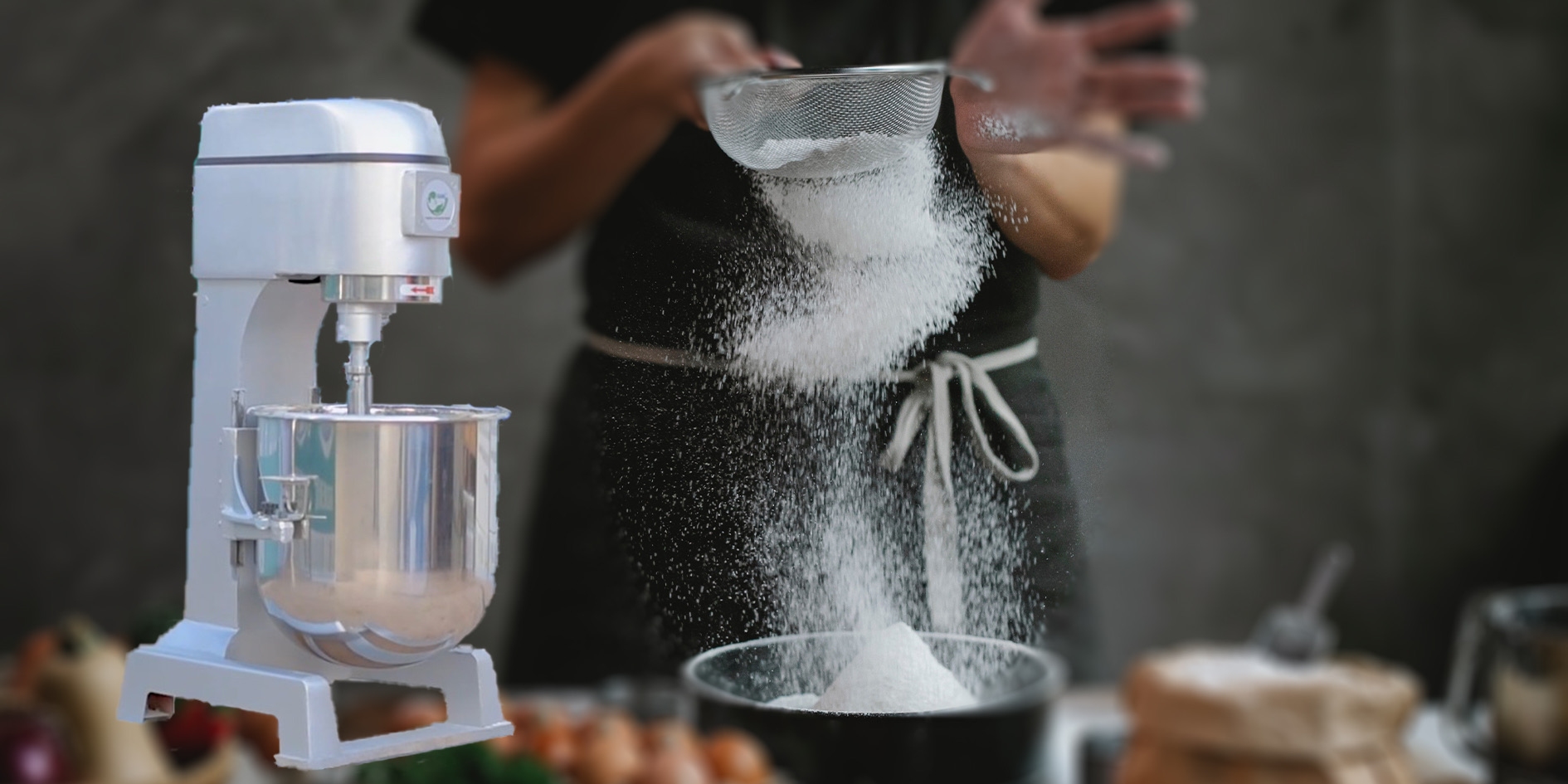
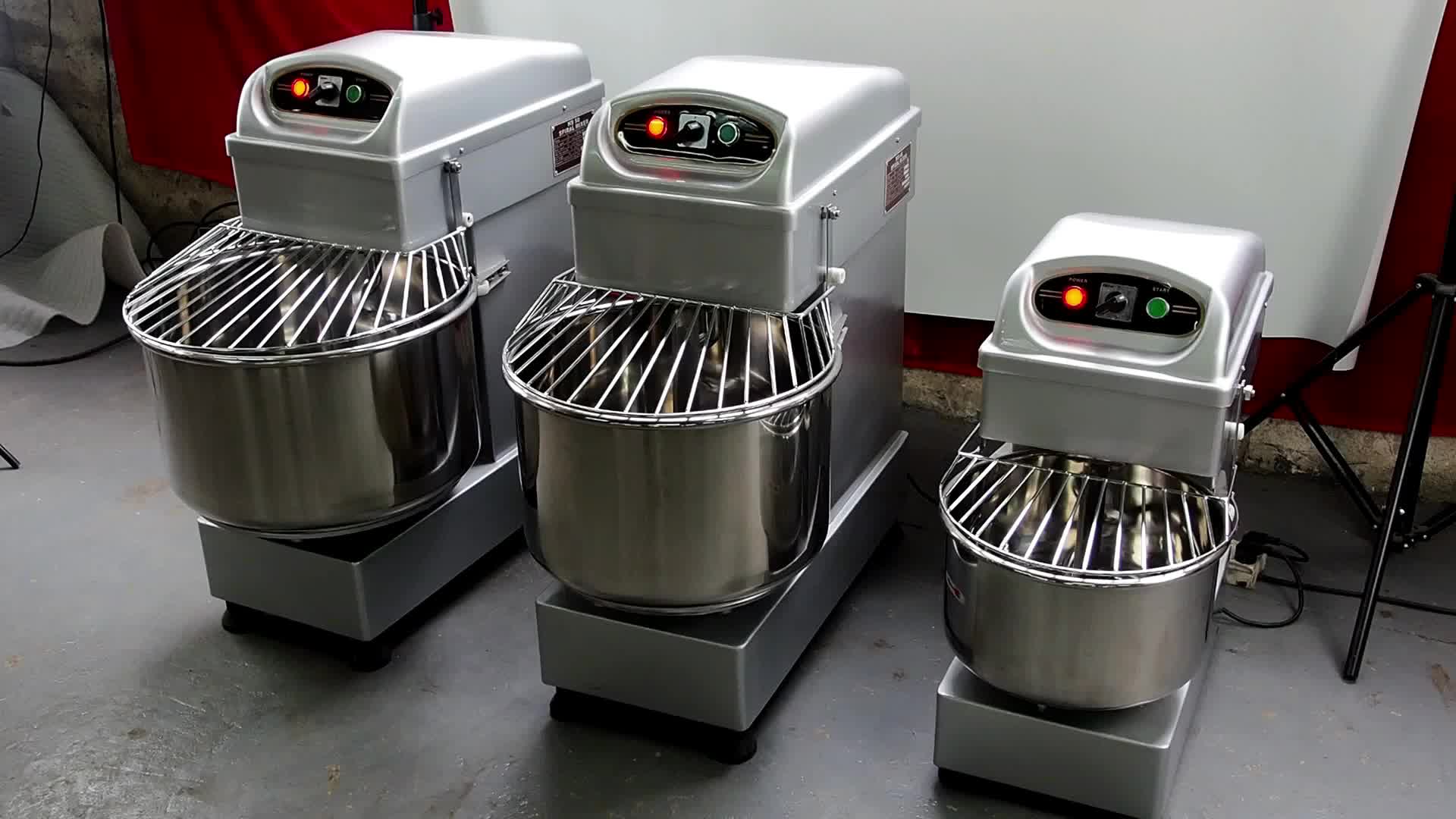
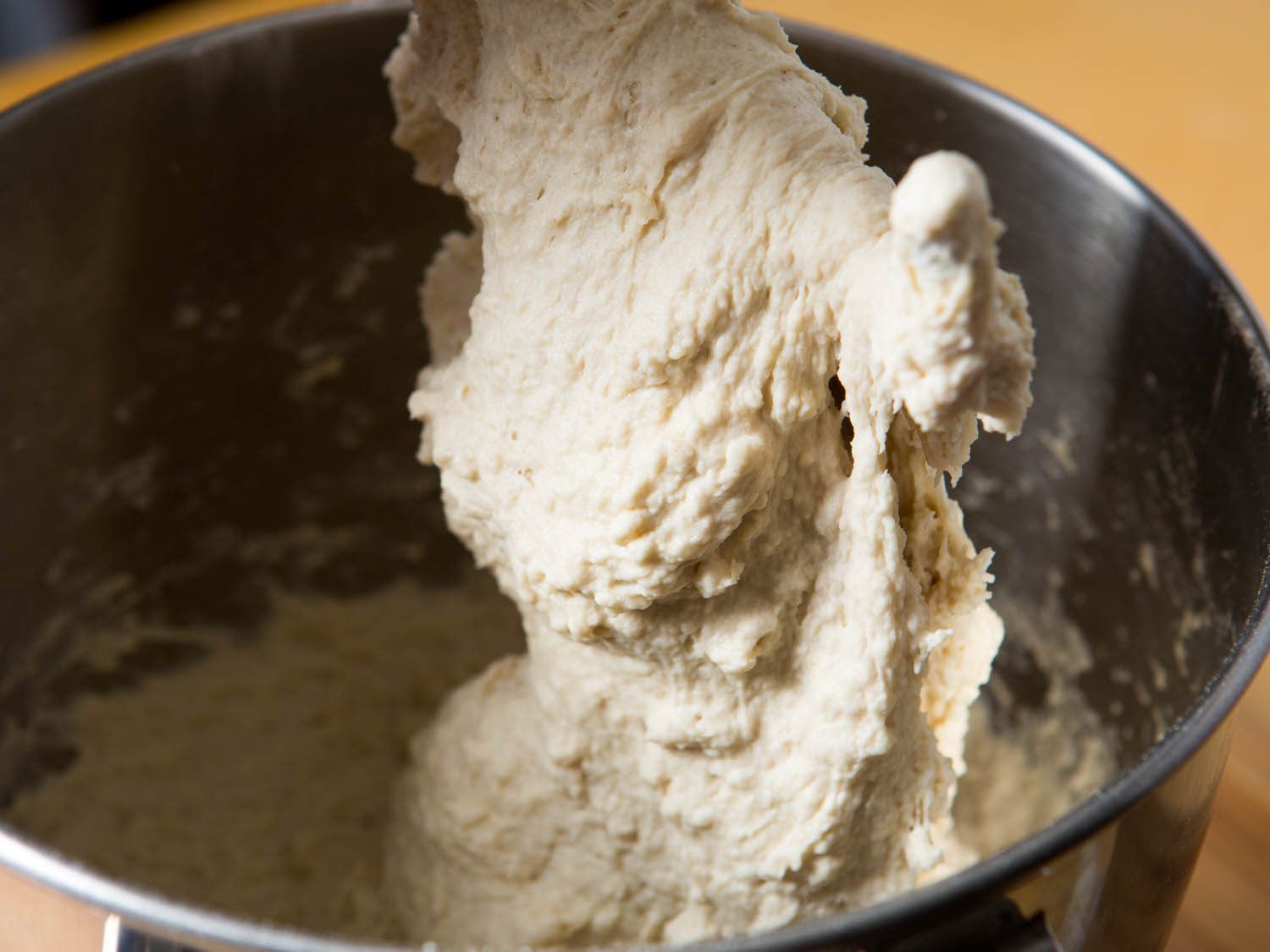
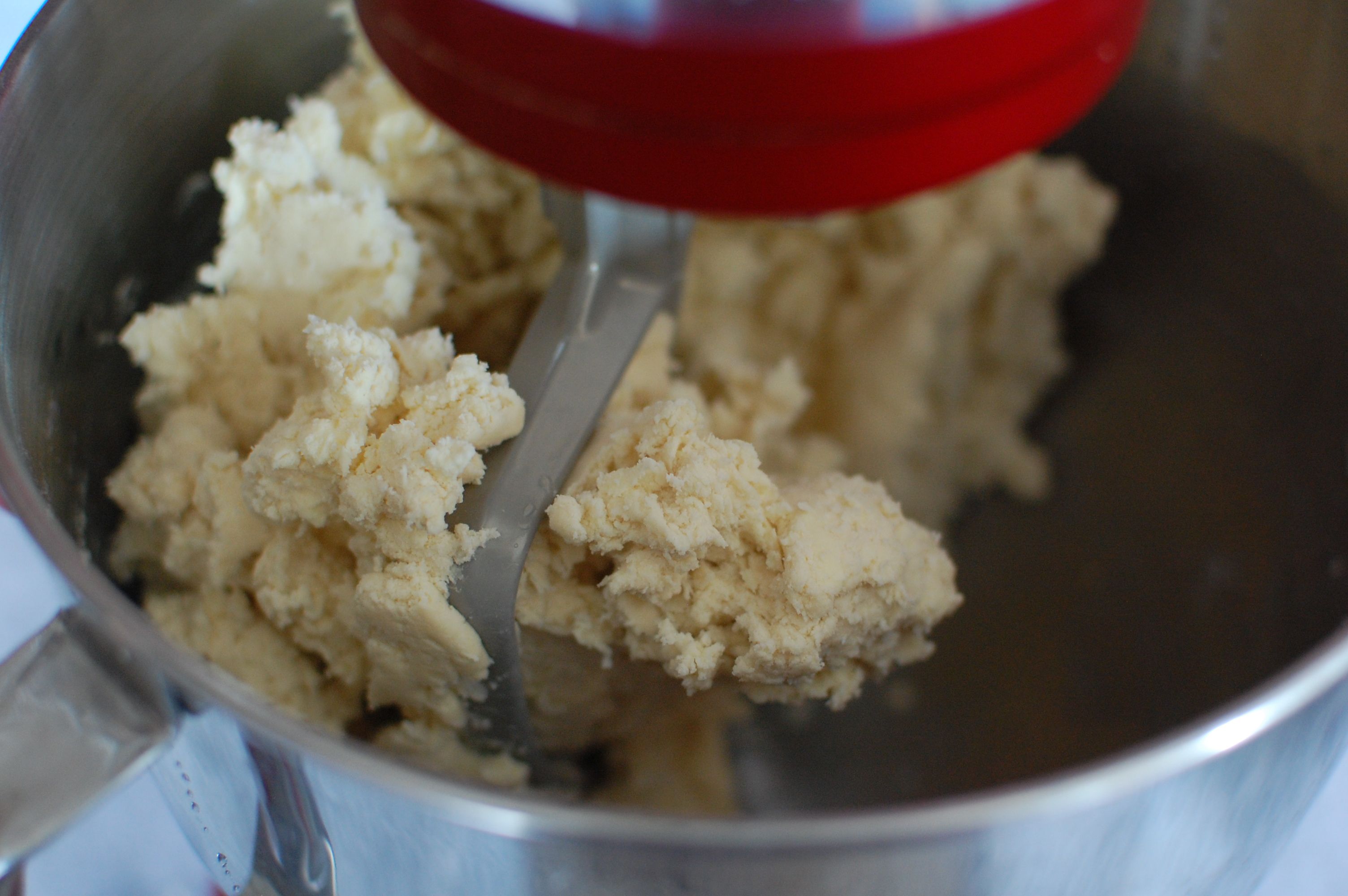
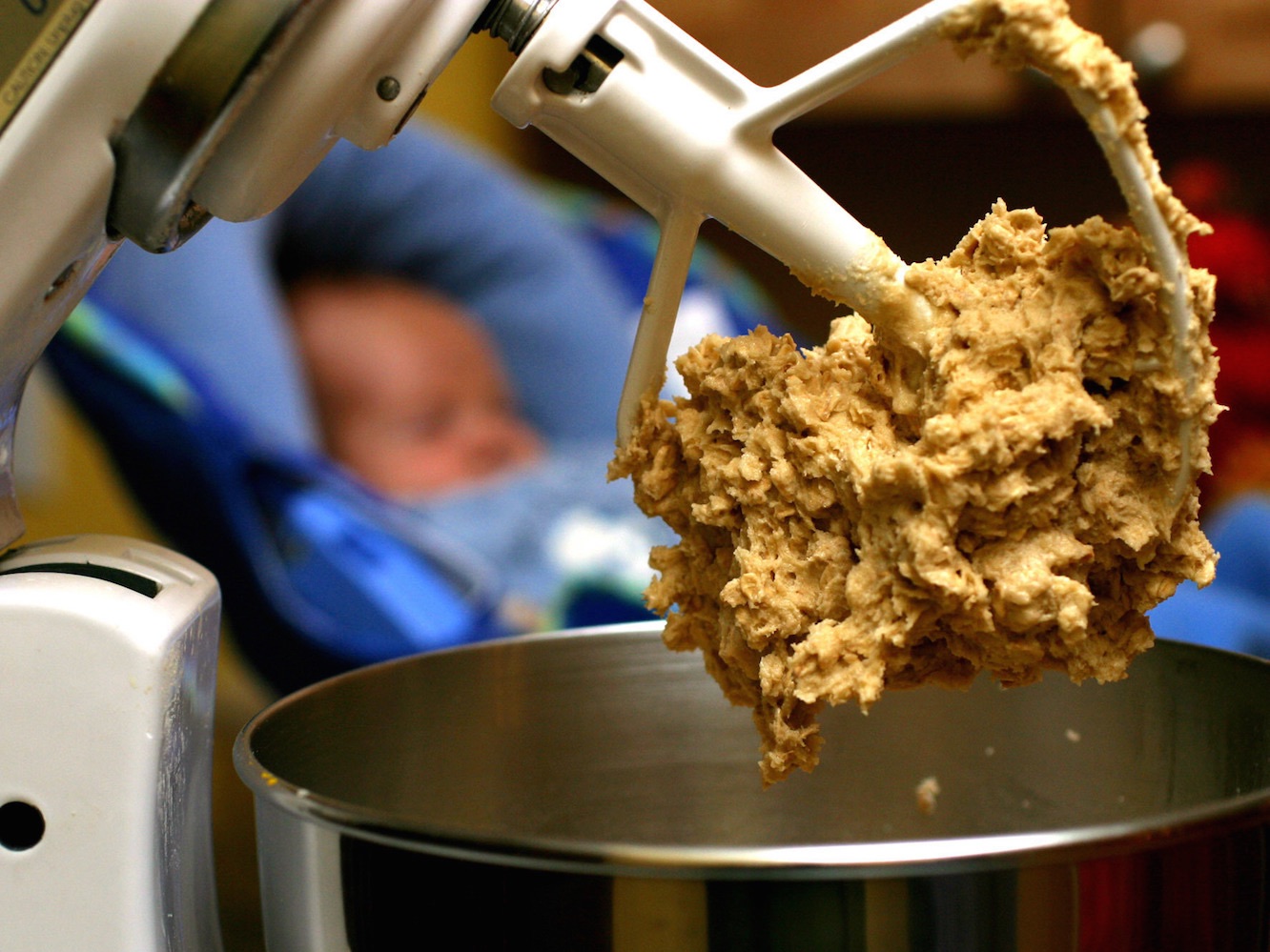
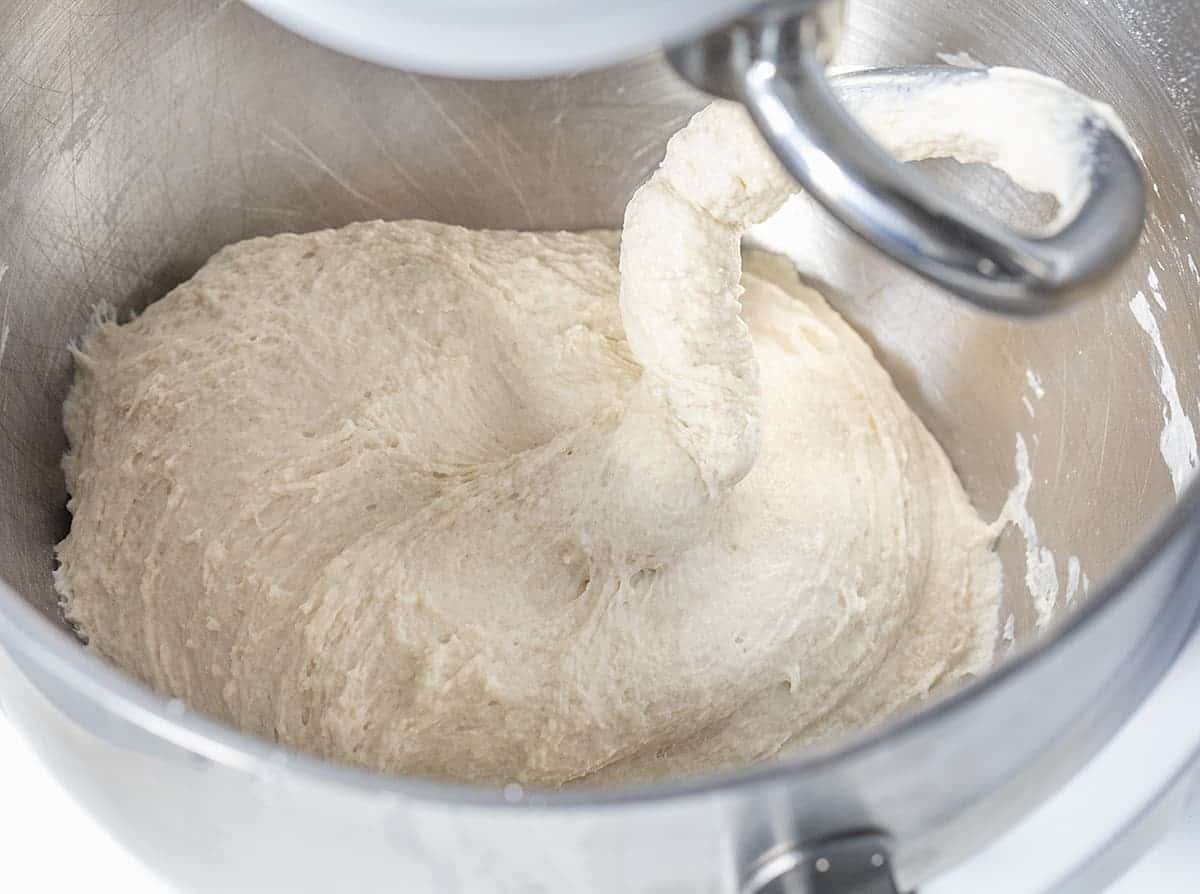
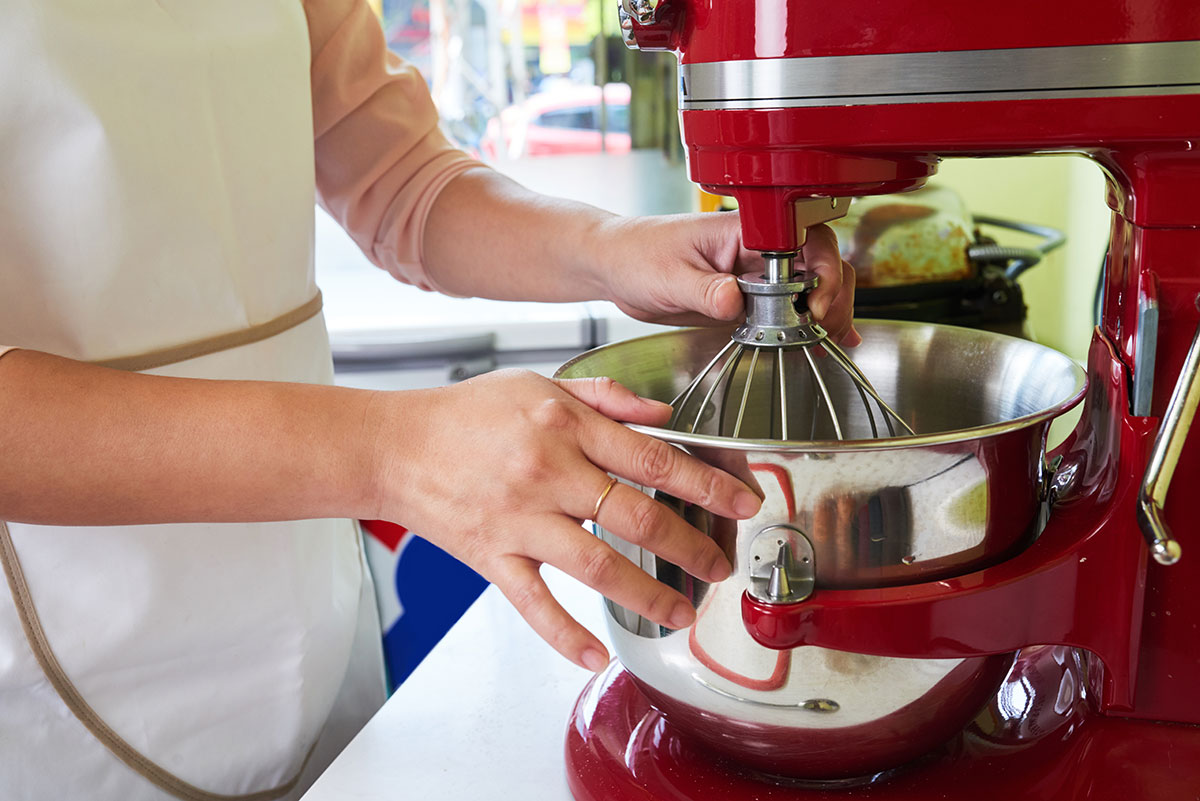
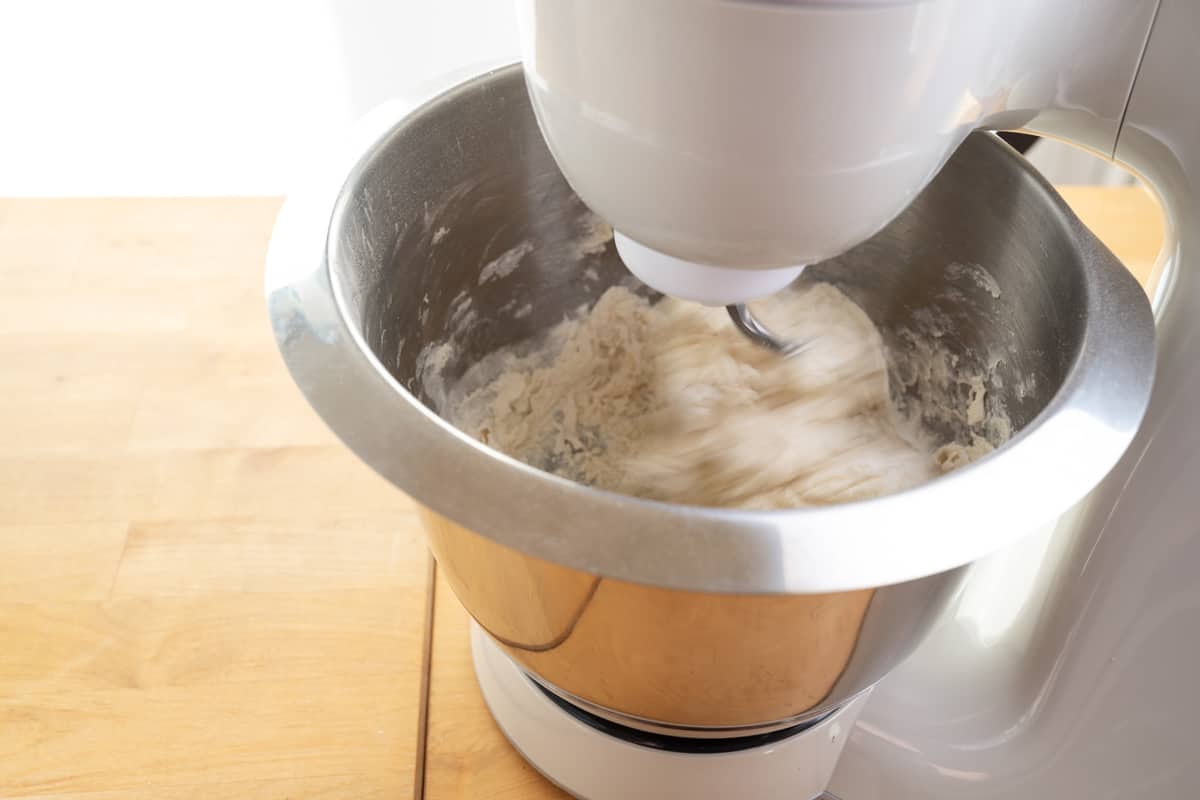
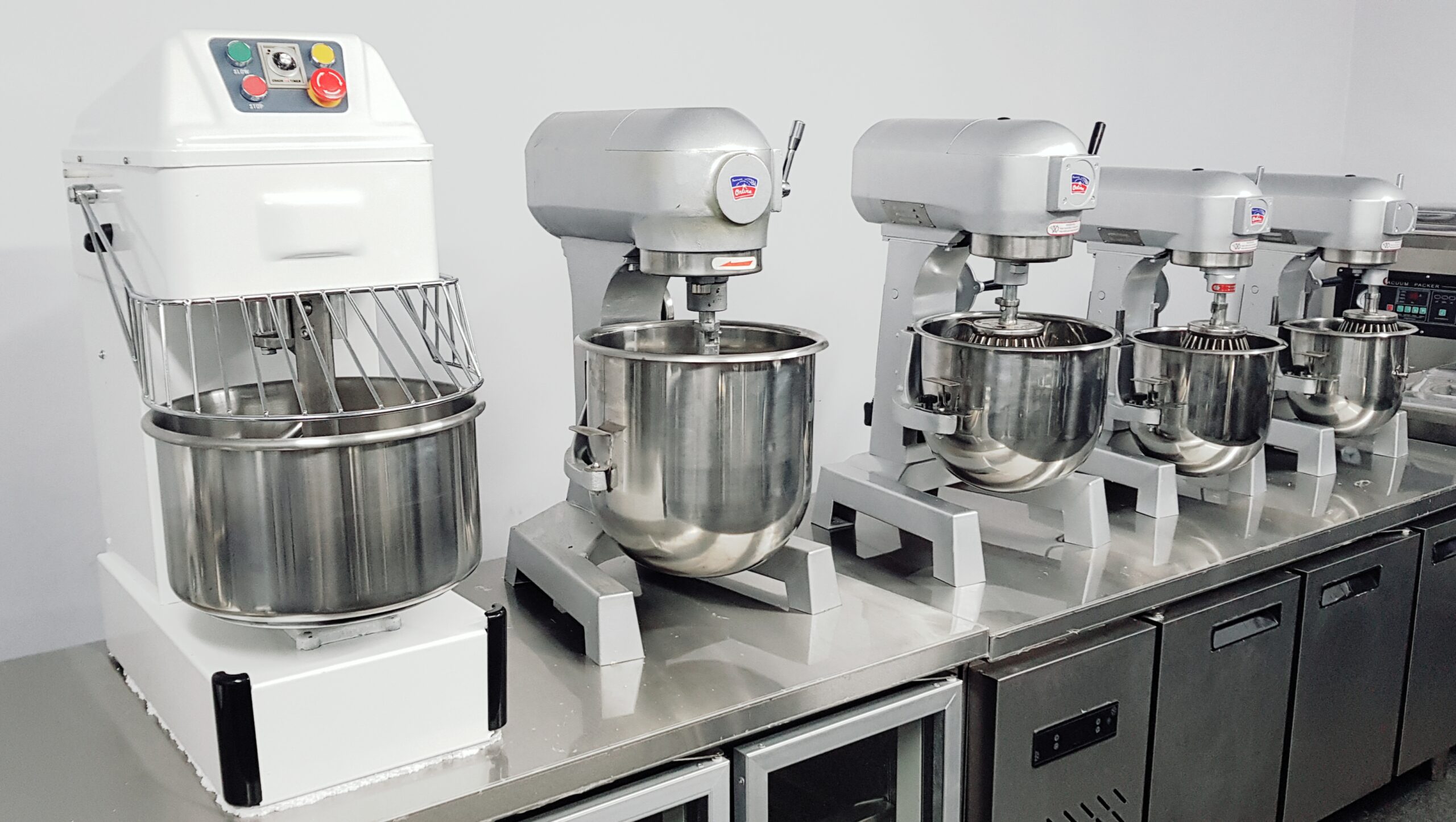
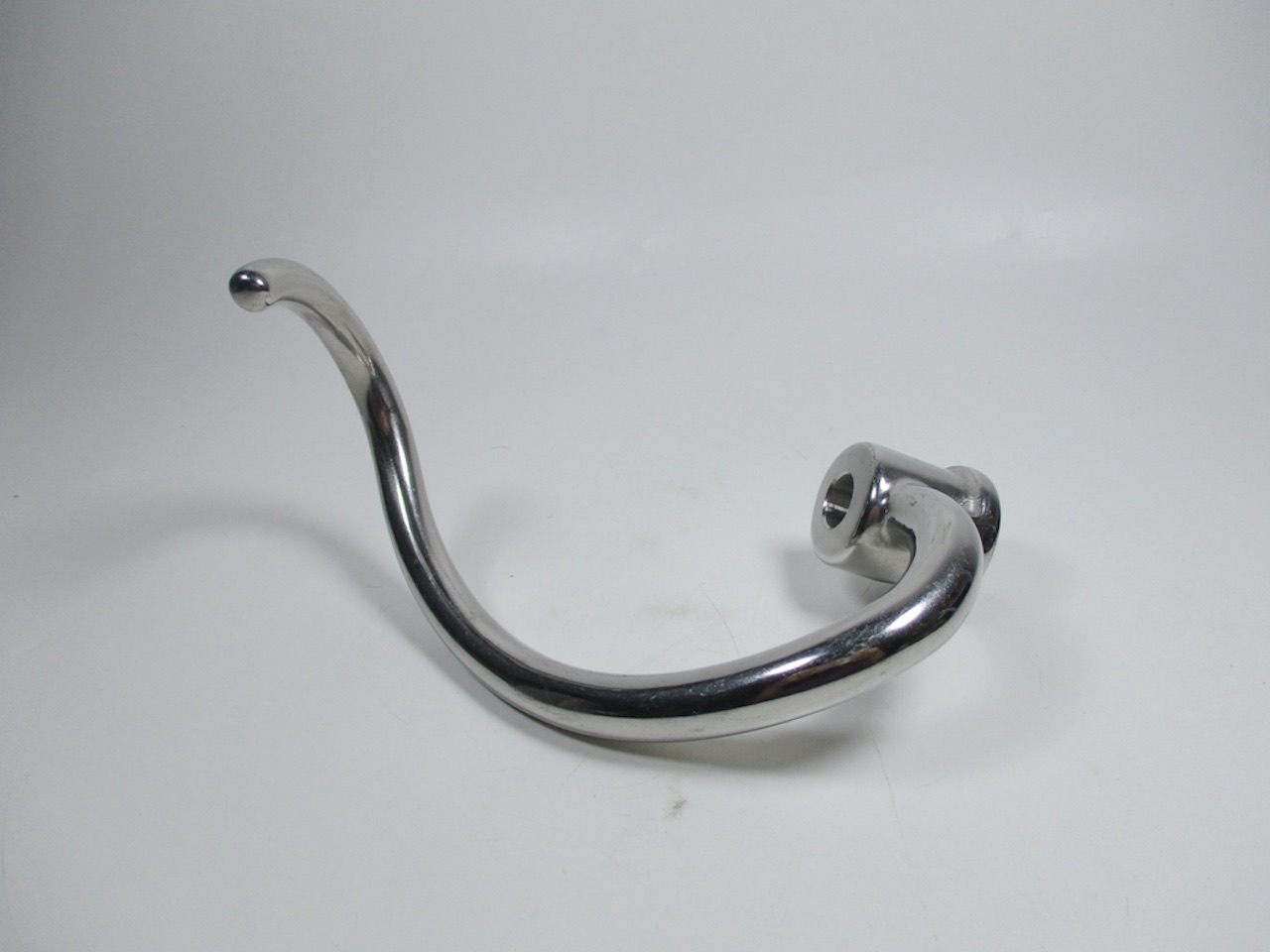
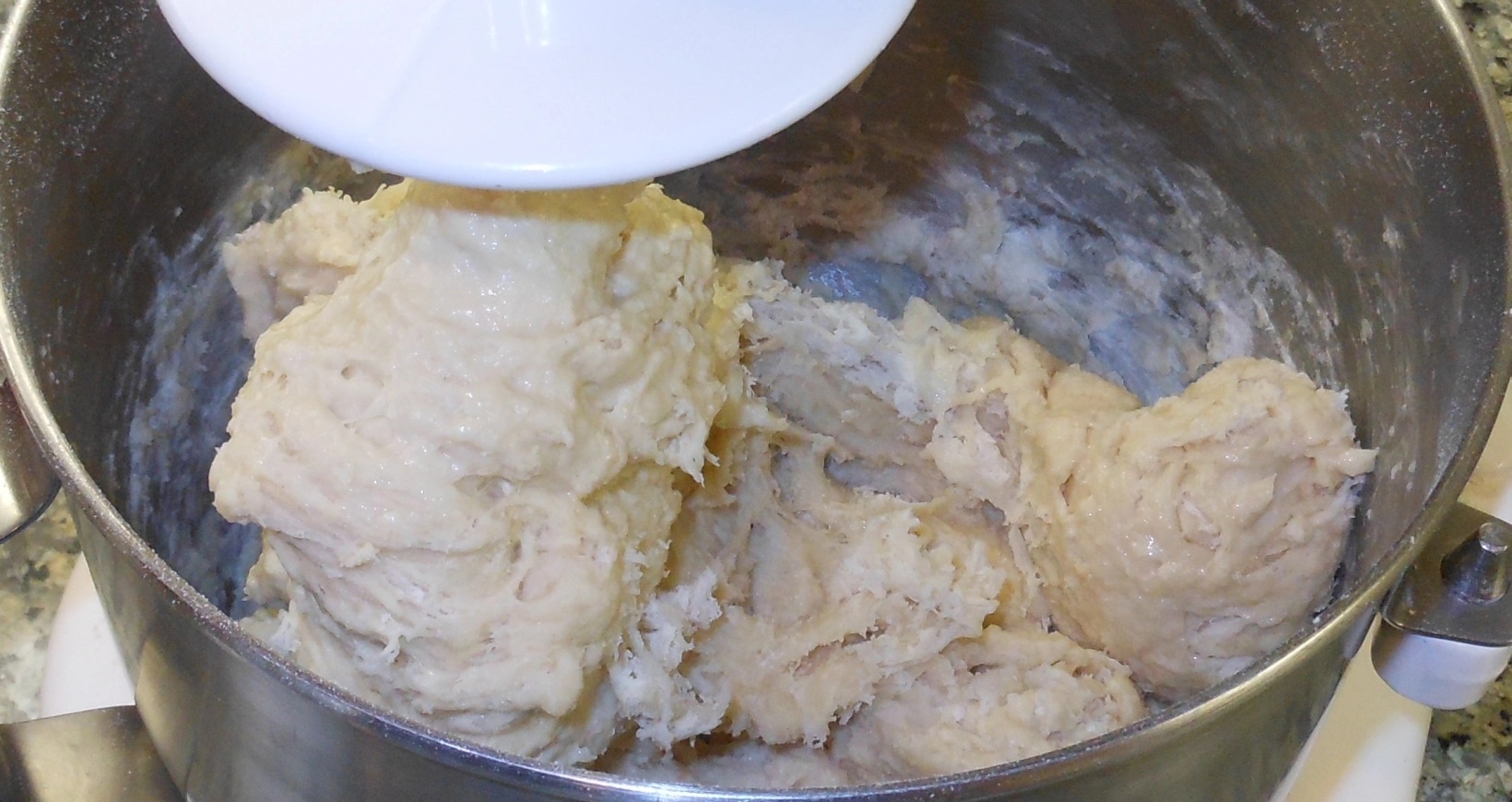
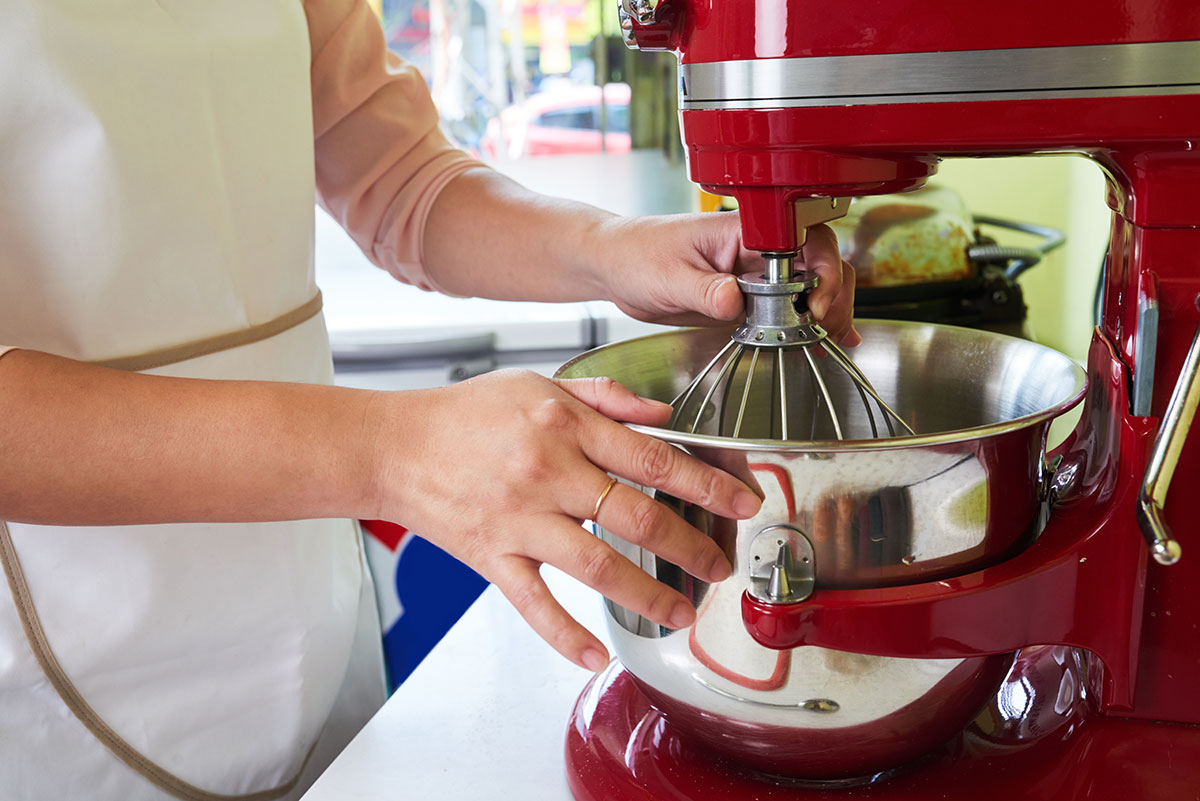

0 thoughts on “What Is A Dough Mixer”